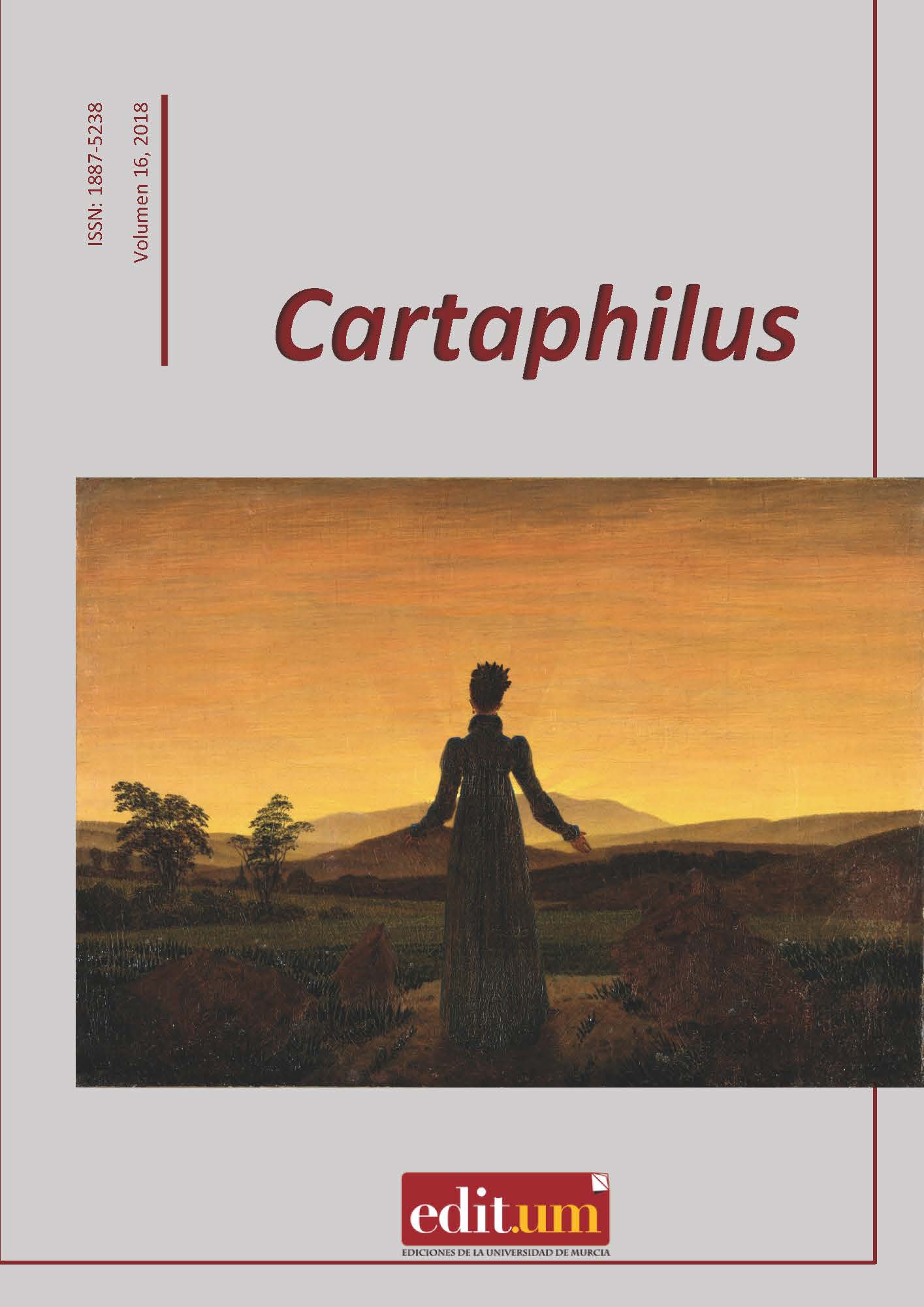Galeano’s paradox: the language of the defeated
Abstract
The present academic work aims at the analysis of the use and purpose of the paradox in Eduardo Galeano’s book Mirrors. Stories of almost everyone (2008). By means of a prior selection, some of the pieces which compose the book will be evaluated in order to prove the fact that the presence of this stylistic device throughout Galeano’s work is not a mere consequence of gratuitousness or ornamentation, but rather a literary tool that the author employs deliberately. In front of a History monopolised by victors, the paradox is the weapon with which the defeated can demonstrate systems’ contradictions and faults. It provides them, simultaneously, the path to self-affirmation and empowerment.
Furthermore, Galeano seeks through the paradox the recovery of the memory of all the events and personalities which have been buried and forgotten by Official History books. And, what is more, this stylistic resource remains in connection with the fragmentary appearance of the book with the purpose of reproducing reality, which is understood as something diverse, composed by a wide range of voices.
Downloads
-
Abstract1498
-
pdf (Español (España))998
References
BORGES, J.L. (2018): Borges esencial, edición conmemorativa. Barcelona: Penguin Random House.
FAULKNER, W. (1995): El ruido y la furia. Barcelona: RBA.
GALEANO, E. (1975): La canción de nosotros. Barcelona: EDHASA.
GALEANO, E.(1984): “Apuntes para un auto-retrato”. Caravelle. Cahiers du monde hispanique et luso-brésilien, n°43, pp. 153-155.
GALEANO, E. (1990): Las venas abiertas de América Latina. Madrid: Siglo XXI.
GALEANO, E.(1995): Mujeres. Madrid: Alianza.
GALEANO, E. (2008): Espejos. Una historia casi universal. Madrid: Siglo XXI.
GALEANO, E. (2009): “Eduardo Galeano lee y conversa sobre relatos de su más reciente libro” en https://www.youtube.com/watch?v=ZHnitZwKY14 (Consulta:13 de mayo de 2018).
GARCÍA BORSANI, R. (2008): Reconstrucción de la historia. Un análisis literario de Memoria del Fuego. Versión mecanoscrita de la autora.
KOVACIC, F. (2015): Galeano: la biografía. Barcelona: Ediciones B.
LÓPEZ BELLOSO, R. (2016): Eduardo Galeano. Un ilegal en el paraíso. Buenos Aires: Siglo XXI.
NÚÑEZ RIVERA, V. (2010): Cristóbal Mosquera de Figueroa. Paradojas: Paradoja en loor de una nariz muy grande; Paradoja en loor de las bubas, edición y estudio de Valentín Núñez Rivera. Salamanca: Universidad de Salamanca.
RANGEL, C. (1991): Del buen salvaje al buen revolucionario. Caracas: Monte Avila. RULFO, J. (2002): Pedro Páramo; El llano en llamas. Edición de José Carlos González Boixo. Madrid: Cátedra.
Works published in this journal are subject to the following terms:
1. The Servicio de Publicaciones of the University of Murcia (the publisher) reserves the copyright of the published works and encourages and allows their reuse under the usage licence indicated in point
© Servicio de Publicaciones, Universidad de Murcia, 2015
2. Works are published in the electronic edition of the journal under a Creative Commons Reconocimiento-NoComercial-SinObraDerivada 4.0 International licence (legal text). They may be copied, used, disseminated, transmitted and publicly displayed, on condition that: i) the author and original source of the publication are cited (journal, publisher and URL of the work); ii) the material is not used for commercial purposes; iii) the existence and specifications of this licence for use are mentioned.

3. Self-archiving conditions We allow and encourage authors to electronically disseminate the preprint versions (the pre-review version) and/or post print (the version that has been reviewed and accepted for publication) of their works before they are published as this encourages earlier circulation and dissemination and so a potential increase in their citation and impact in the academic community.




